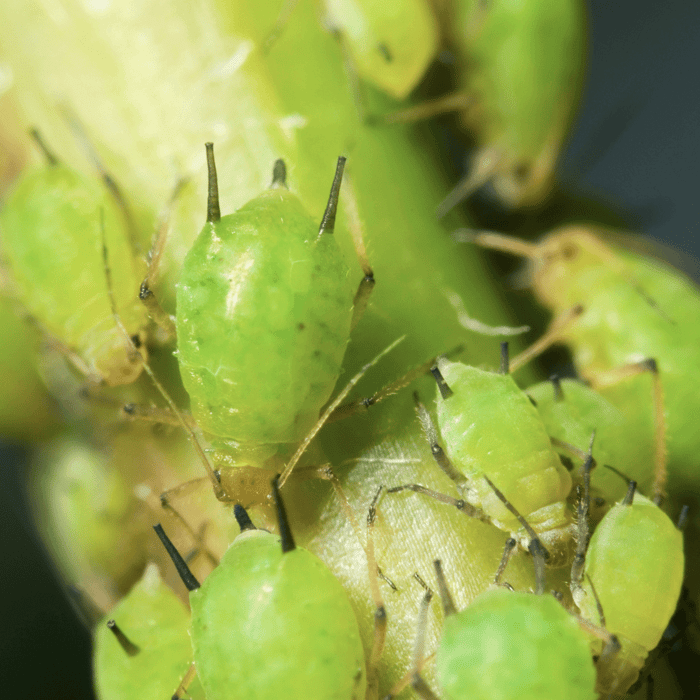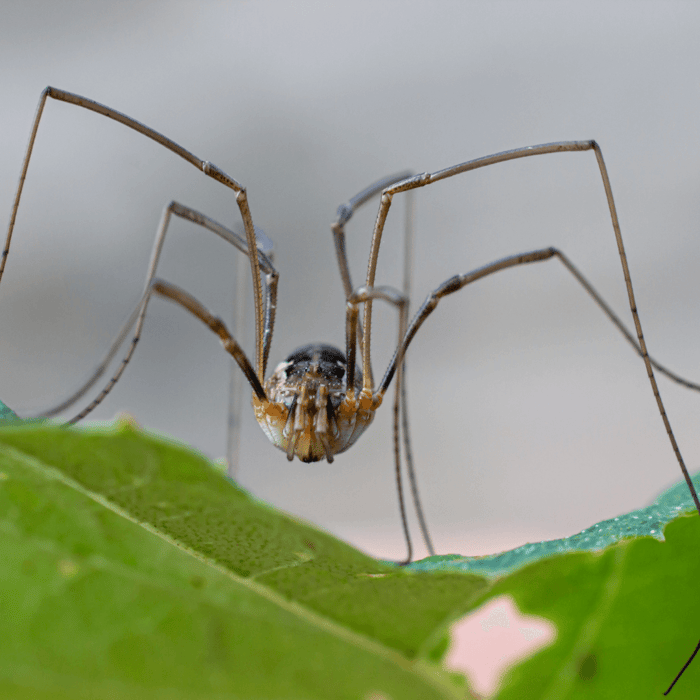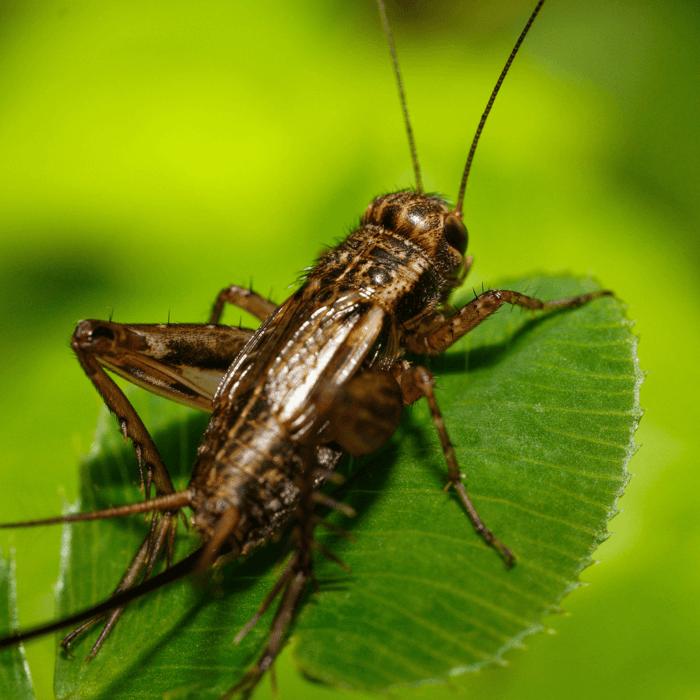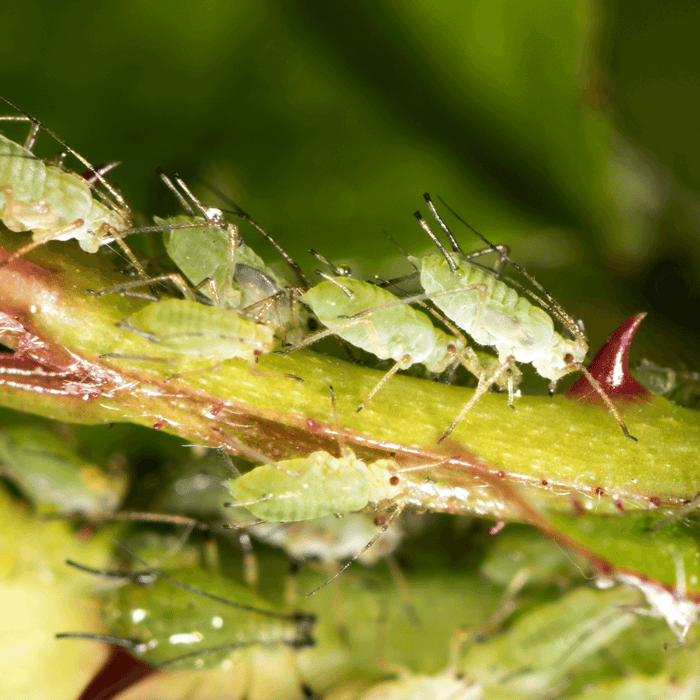Aphids are small, sap-sucking insects that can cause significant damage to plants, both indoors and outdoors. They are a common pest in gardens and farms and can be difficult to control. Neem oil is a natural insecticide that has been used for centuries to protect crops from pests, including aphids. In this article, we will explore the effectiveness of neem oil against aphids, its benefits for controlling pests and preventing powdery mildew, and how to properly use it to ensure the safety of humans, animals, and beneficial insects. Does neem oil kill aphids?
Definition of Neem Oil
Neem oil is a vegetable oil extracted from the neem tree's seeds (Azadirachta indica). The neem tree is native to India but now grows in other parts of the world.
The oil has been used for centuries as a traditional medicine and insecticide. Neem oil contains insecticidal compounds and can kill or repel insects.
Introduction to Aphids
Aphids are small insects that feed on the sap of plants. They are usually found in large groups on new growth or underneath leaves.
Depending on their species, aphids come in different colors, such as green, yellow, brown, or black. They reproduce quickly and can cause significant damage to plants by stunting growth, distorting leaves, or transmitting diseases.
Purpose of the Article
This article aims to explore whether neem oil is an effective solution for controlling aphid infestations in gardens and farms. We will discuss how aphids damage plants and how neem oil works against these pests. Additionally, we will provide information about the benefits of using neem oil over other chemical pesticides and offer tips on using it properly for maximum effectiveness while ensuring safety for humans and animals.
What are Aphids?
Aphids are small, soft-bodied insects that feed on the sap of plants. They are a common pest in gardens and farms and can cause significant damage to crops when left unchecked. More than 4,000 species of aphids worldwide have different physical characteristics and feeding preferences.
Physical Characteristics
Aphids range from 1 to 10 millimeters, depending on the species. They have pear-shaped bodies, six legs, two antennae, and two tube-like structures called cornicles protruding from their abdomen.
These cornicles secrete a waxy substance that helps protect the aphids from predators and environmental stressors. Aphids can be green, yellow, black, or brown in color, depending on the species.
Life Cycle and Reproduction
The life cycle of an aphid includes four stages: egg, nymph (immature), adult wingless, or adult winged. The eggs hatch into larvae which molt several times before becoming adults. Females can give birth to live offspring without mating through parthenogenesis, which allows for rapid population growth under favorable conditions.
Damage Caused by Aphids
Aphids can cause significant damage to plants by feeding on sap which weakens plant tissues leading to stunted growth or deformation of leaves and shoots depending on where they feed. Additionally, some species of aphids transmit viruses while feeding, damaging crops further.
What is Neem Oil?
Neem oil is a type of vegetable oil that has been used in traditional medicine and agriculture for centuries. It is derived from the neem tree, native to India and Southeast Asia. The oil itself is made by crushing the seeds of the neem tree, which releases a concentrated, fatty acid-rich liquid.
History and Origin of Neem Oil
Neem oil has a long history of use in traditional Indian medicine for treating various ailments, including skin problems, inflammation, infections, and fever. The leaves and seeds were also used as insecticides to protect crops from pests. In recent years, scientific research has confirmed many of the beneficial properties of neem oil.
How it Works
Neem oil disrupts the life cycle of insects at various stages - eggs, larvae, or adults - depending on the species it targets. It contains compounds called azadirachtins that have insecticidal properties. These compounds interfere with hormonal systems in insects, preventing them from feeding or reproducing correctly.
Additionally, neem oil has antifungal properties, making it effective against certain fungi that attack plants. It can also act as an organic fertilizer, improving soil health and promoting growth.
Benefits of Using Neem Oil
One major benefit of using neem oil for pest control is its non-toxicity to humans and animals when used correctly. It does not harm beneficial insects like bees or ladybugs either.
This makes it an ideal choice for organic gardening or farming. Other benefits include its effectiveness against a wide range of pests, such as aphids, whiteflies, mealybugs, etc., and its ability to improve plant health by boosting its immune system against diseases and pests.
In addition, neem oil can be easily found in most gardening or health stores and is relatively inexpensive compared to other chemical pesticides. With all these benefits, it's no wonder that neem oil has become a popular choice for gardeners looking to protect their plants from pests and diseases.
Does Neem Oil Kill Aphids?
Scientific Evidence Supporting the Use of Neem Oil Against Aphids
Neem oil has been a natural insecticide for centuries, particularly in India. Its effectiveness against aphids has been tested and confirmed by many scientific studies. According to research published in the Journal of Economic Entomology, neem oil effectively controls aphid infestations and can reduce their populations significantly.
The active ingredient in neem oil, azadirachtin, disrupts aphids' feeding and mating behavior, leading to reduced reproduction rates. Another study by the International Journal of Tropical Insect Science found that neem oil was effective against different species of aphids on various crops, such as roses and broccoli.
The researchers noticed a significant reduction in aphids after applying neem oil to the plants. These findings provide strong scientific evidence that supports the use of neem oil as an effective method for controlling aphid infestations.
How to Apply Neem Oil to Control Aphids
When using neem oil to control aphids, it's essential to apply it correctly for maximum effectiveness. Begin by diluting pure neem oil with water according to the instructions on the label or package. Once diluted, transfer the solution into a spray bottle and spray it directly on infected plants' leaves and stems.
It's crucial to thoroughly cover all plant parts where you find aphid infestations since they typically hide under leaves or inside plant crevices. You may need a higher concentration if there is a heavy infestation or repeated application if you see any new activity because some species have developed resistance.
Precautions and Safety Measures When Using Neem Oil
While neem oil is considered safe for humans and other animals, improper handling can lead to potential harm. Before using neem oil, wear protective clothing such as gloves and goggles to avoid accidental contact with the eyes or skin.
Additionally, it's important to apply neem oil during the cooler hours of the day or when there is no direct sunlight. Direct sunlight can cause the solution's active ingredients to break down, reducing its effectiveness.
Always follow the label or package instructions regarding dilution, application frequency, and storage since different brands/ manufacturers have different recommended use methods. By following these precautions and safety measures, you can effectively control aphid infestations using neem oil without putting yourself or your plants at risk.
Other Benefits of Using Neem Oil for Pest Control
Non-toxicity and Environmental Friendliness
One of the significant benefits of using neem oil for pest control is its non-toxicity and low environmental impact. Unlike chemical pesticides, neem oil is a natural product that does not harm beneficial insects such as bees and ladybugs.
It also breaks down quickly in the environment, leaving no harmful residue behind. Moreover, neem oil poses no health risks to humans or pets.
It is safe to handle, even when applied directly to plants. This makes it an ideal choice for those who want to control pests without risking their health or the environment.
Improvement in Plant Health
Another benefit of using neem oil for pest control is its ability to improve plant health. Neem oil contains nutrients such as nitrogen, phosphorous, and potassium essential for plant growth. These nutrients are released slowly into the soil as the neem oil breaks down.
In addition, neem oil has been shown to increase plant immunity against pests and diseases. It can help plants build a natural resistance against common pests such as aphids, mites, and whiteflies when applied regularly.
Effectiveness Against Other Pests
Neem oil is effective against aphids and other
common garden pests such as mealybugs, spider mites, and scale insects. It disrupts their feeding habits and reproductive cycles, ultimately leading to their demise. Moreover, because neem oil is an all-natural product with no harmful chemicals or toxins, it can be used on a wide variety of plants without fear of damaging them or causing harm to beneficial insects in your garden.
Neem oil offers numerous benefits beyond its effectiveness at controlling aphids. Its non-toxicity, environmental friendliness, ability to improve plant health, and effectiveness against a wide range of pests make it an ideal choice for those who want to control pests naturally without harming the environment or putting their health at risk.
Conclusion
After careful examination of does neem oil kill aphids, it is clear that it does help kill and control aphid populations. Its active ingredients work by disrupting the feeding behavior and reproductive system of aphids, ultimately leading to their demise. Additionally, neem oil is safe for plant use and poses no harm to humans, animals, or the environment.
Summary of Key Points
Throughout this article, we have discussed the physical characteristics of aphids and how they can cause damage to crops and plants. Furthermore, we have explored the history and benefits of using neem oil as a pesticide for pest control.
Studies have shown that neem oil suffocates aphids and deter them from feeding on plants through taste aversion. Using neem oil is also beneficial as it does not harm other beneficial insects such as ladybugs or bees.
Final Thoughts on the Effectiveness of Neem Oil Against Aphids
Neem oil can be an effective alternative to chemical pesticides when controlling aphid populations. However, like any organic pesticide, it may require more frequent application than conventional pesticides to maintain its effectiveness against pests.
It is essential for gardeners or farmers who wish to use neem oil as a pest control method against aphids should always follow proper procedures for application and dosage regulations recommended by manufacturers or farming experts. Utilizing natural processes such as neem oil helps promote sustainable agriculture, reducing our exposure to harmful chemicals but also helps preserve biodiversity while ensuring crop yields are protected and optimized for future seasons.
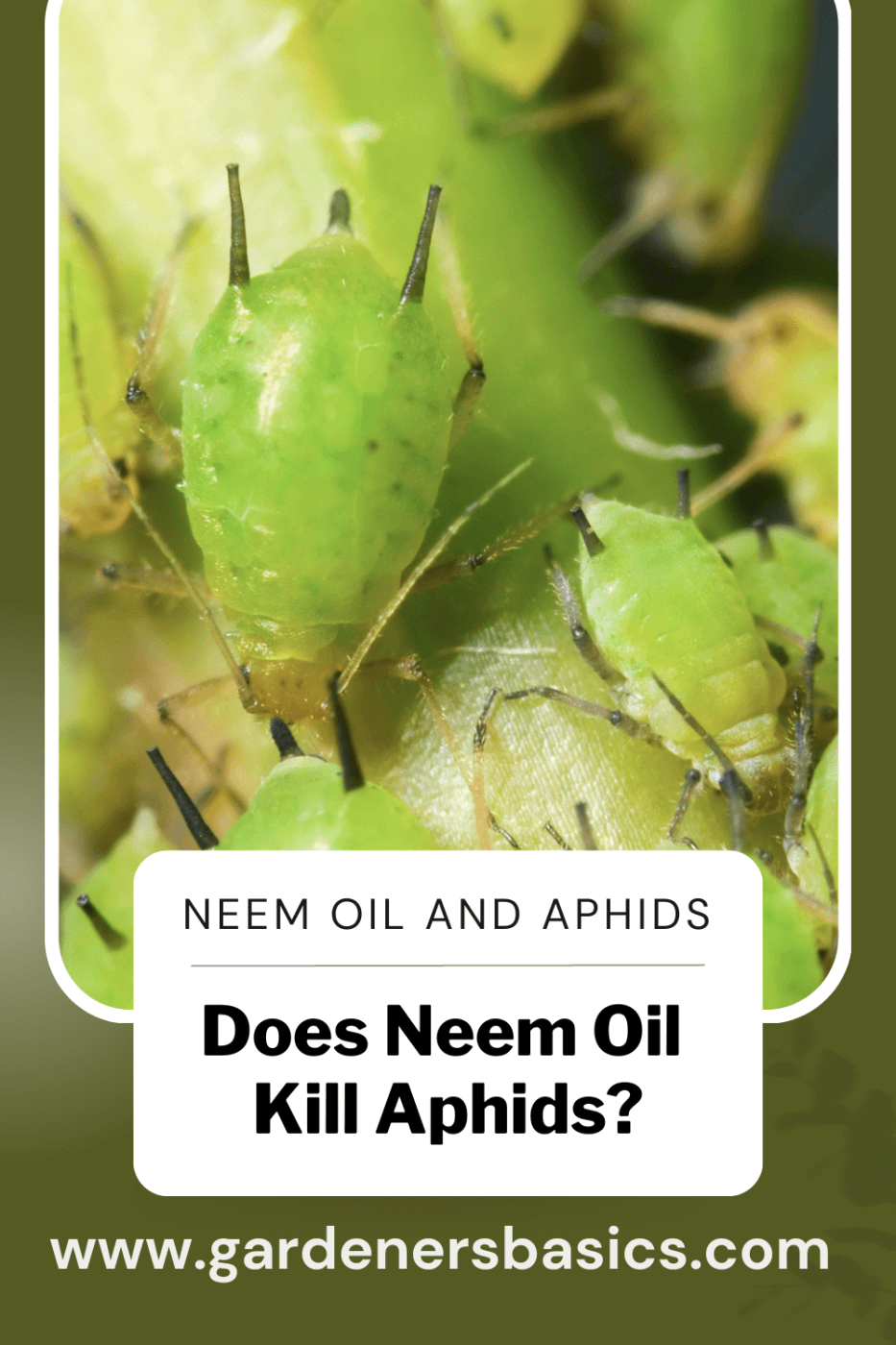 Frequently Asked Questions - Does Neem Oil Kill Aphids
Frequently Asked Questions - Does Neem Oil Kill Aphids
Q: What is neem oil?
A: Neem oil is a vegetable oil extracted from the seeds of the neem tree (Azadirachta indica), native to India and Southeast Asia. Due to its insecticidal properties, it has been used for centuries in traditional medicine and as an insecticide.
Q: How does neem oil work against aphids?
A: Neem oil contains compounds like azadirachtins that disrupt the hormonal systems in insects, preventing them from feeding or reproducing correctly. It is effective in controlling aphid infestations and can reduce their populations significantly.
Q: Is neem oil safe for humans, animals, and the environment?
A: Yes, neem oil is considered safe for humans, animals, and the environment when used correctly. It does not harm beneficial insects like bees or ladybugs and breaks down quickly in the environment, leaving no harmful residue behind.
Q: How do I apply neem oil to control aphids?
A: Dilute pure neem oil with water according to the instructions on the label or package. Transfer the solution into a spray bottle and spray it directly on infected plants' leaves and stems, covering all plant parts where aphids are present.
Q: Are there any precautions I should take when using neem oil?
A: Wear protective clothing such as gloves and goggles to avoid accidental contact with the eyes or skin. Apply neem oil during the cooler hours of the day or when there is no direct sunlight. Always follow the label or package instructions regarding dilution, application frequency, and storage.
Q: Can neem oil be used against other pests besides aphids?
A: Yes, neem oil is effective against various pests, such as mealybugs, spider mites, and scale insects. It disrupts their feeding habits and reproductive cycles, ultimately leading to their demise.
Q: Does neem oil have any benefits for plant health?
A: Neem oil can improve plant health by providing essential nutrients such as nitrogen, phosphorous, and potassium, released slowly into the soil as the neem oil breaks down. It can also boost plant immunity against pests and diseases by helping them build a natural resistance against common pests like aphids, mites, and whiteflies.
Q: How often should I apply neem oil to control aphids?
A: The application frequency depends on the infestation's severity and the specific instructions provided by the neem oil product you are using. It is essential to follow the label or package instructions regarding application frequency. You may need to apply neem oil more frequently than conventional pesticides to maintain its effectiveness against pests.
Q: Can aphids develop resistance to neem oil?
A: Some species of aphids may develop resistance to neem oil over time, which may require using a higher concentration of neem oil or more frequent applications to maintain control. Monitoring aphid populations and adjusting your pest management strategy is crucial.
Q: Can I use neem oil on edible plants?
A: Yes, neem oil can be used on edible plants if you follow the proper application guidelines and instructions on the label or package. Make sure to adhere to any recommended pre-harvest intervals to ensure the safety of the produce you consume.
 Frequently Asked Questions - Does Neem Oil Kill Aphids
Frequently Asked Questions - Does Neem Oil Kill Aphids


